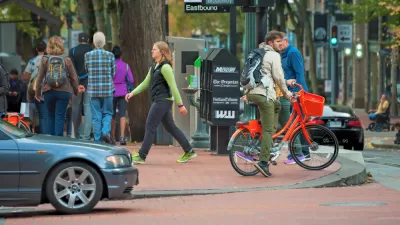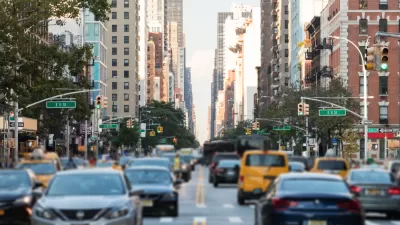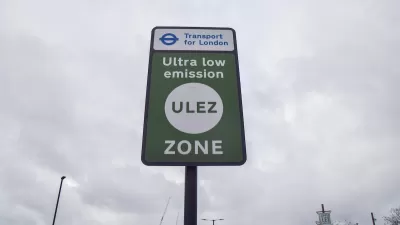A new task force formed in Portland, Oregon will consider ways to make automobile use more expensive, including parking pricing, area and time-based fees, fleet charges, road user charges, cordons, and freeway pricing.

The city of Portland is organizing a new Pricing for Equitable Mobility Community Task Force, tasked with developing new policies that will more fairly price the cost of automobiles on public roads, according to an article by Jonathan Maus. The task force will be a joint effort headed by the Bureau of Transportation (PBOT) and Bureau of Planning and Sustainability (BPS).
"PBOT Commissioner Chloe Eudaly is a major fan of congestion pricing so it should come as no surprise that she’s looking for policy and public backing to strengthen its case," explains Maus of some of the political will driving the formation of the new task force.
The city is following in the footsteps of the state of Oregon, which approved legislation in 02017 mandating the Oregon Department of Transportation to move forward with congestion pricing. "Their plan to toll I-5 and I-205 was sent to the Federal Highway Administration in December 2018," according to Maus. (Planetizen correspondent Irvin Dawid also gathered information on that plan in 2018.)
Portland's exploration into new pricing schemes are expected to be much more expansive. "In a statement, Portland said strategies that will be considered by the task force may include, but are not limited to: 'parking pricing, area and time-based fees, fleet charges, road user charges, cordons [priced zones], freeway pricing and more'."
FULL STORY: City task force will explore how to make drivers pay true cost of road use

Rethinking Redlining
For decades we have blamed 100-year-old maps for the patterns of spatial racial inequity that persist in American cities today. An esteemed researcher says: we’ve got it all wrong.

Montreal Mall to Become 6,000 Housing Units
Place Versailles will be transformed into a mixed-use complex over the next 25 years.

Planetizen Federal Action Tracker
A weekly monitor of how Trump’s orders and actions are impacting planners and planning in America.

Santa Clara County Dedicates Over $28M to Affordable Housing
The county is funding over 600 new affordable housing units via revenue from a 2016 bond measure.

Why a Failed ‘Smart City’ Is Still Relevant
A Google-backed proposal to turn an underused section of Toronto waterfront into a tech hub holds relevant lessons about privacy and data.

When Sears Pioneered Modular Housing
Kit homes sold in catalogs like Sears and Montgomery Ward made homeownership affordable for midcentury Americans.
Urban Design for Planners 1: Software Tools
This six-course series explores essential urban design concepts using open source software and equips planners with the tools they need to participate fully in the urban design process.
Planning for Universal Design
Learn the tools for implementing Universal Design in planning regulations.
City of Camden Redevelopment Agency
City of Astoria
Transportation Research & Education Center (TREC) at Portland State University
Regional Transportation Commission of Southern Nevada
Toledo-Lucas County Plan Commissions





























